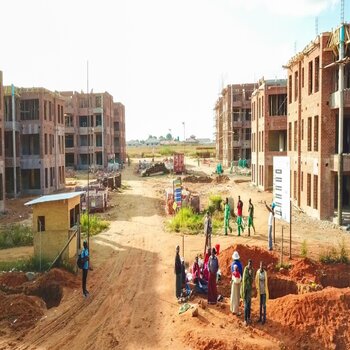The national government expects to deliver 220 000 houses in Norton and across the country as part of Zimbabwe’s housing project. The programme is part of the Second Republic’s aim to eradicate poverty. It also seeks to safeguard residents against con artists by providing low-cost accommodation.
Also Read: Construction of Semwa Dam project in Zimbabwe on track
As stated in national Vision 2030, the government checks all the appropriate boxes on its way to becoming an upper-middle-income country.
The human settlements policy’s objective is to guide the execution of important elements of Agenda 2030’s Sustainable Development Goals, Vision 2030, and national and international flexibility frameworks.
As a result, President Mnangagwa’s National Development Policy 1 (NDS 1), a five-year economic strategy covering 2021-2025, would contribute to overall economic development.
The National Development Strategy 1 (NDS 1), the successor to the Transitional Stabilization Programme (TSP), is crucial to attaining Vision 2030. This seeks to streamline gender, youth, women and other vulnerable groups. In turn, it will ensure equal opportunities for all citizens in an economically stable environment.
The concept of high-rise residences envisioned by the policy is the way to go. However, in certain cases, this may be more expensive than building low-cost 50-square-metre houses on a socially acceptable 200 or 250 square-metre property.
The Second Republic, led by President Mnangagwa, has set 220 000 houses and flats by 2025 as its current goal. Hundreds of them will be built in Norton.
40% of the land earmarked for human settlement will be set aside to construct high-rise flats and buildings. This is to curb the settlement stretch that this project will create.
The settlements policy recognises housing as a fundamental human right. It also allows for Public-Private Partnerships (PPPs) in the building industry. The shelter is recognised as one of the most effective indicators of a country’s progress toward poverty eradication.
Shelter Afrique, a Pan-African bank, has committed to lend US$65 million towards Zimbabwe’s housing project. This is to promote housing through building societies and urban development. Hundreds of the 220 000 planned residences at Norton’s KockMallock Estate have already been built due to the partnership.

Leave a Reply